Three in four Americans feel little or no personal connection to Romney, Esquire/Yahoo poll finds
Three in four Americans feel they have little or nothing in common with Mitt Romney, while nearly 60 percent feel the same way about President Barack Obama, according to an Esquire/Yahoo! News poll.
In the wake of Romney's remarks dismissing nearly half of Americans as self-identified victims who are dependent on government—videotaped at a donor event earlier this year and posted online this week by Mother Jones magazine—these new numbers are more bad news for a candidate struggling to connect with ordinary Americans. The margin of error for the survey, conducted shortly after the two national political conventions, is plus or minus 4 percentage points.
Further complicating the Republican ticket's image problem is that a Romney presidency is viewed as significantly more beneficial to wealthy Americans than a second Obama term would be. Sixty-two percent of those surveyed said the wealthy would be better off under Romney than Obama. That split reverses when Americans were asked who would benefit the poor: 57 percent say Obama, 30 percent say Romney.
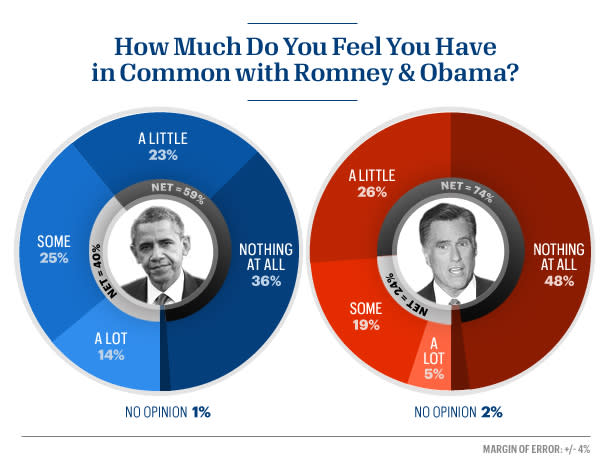
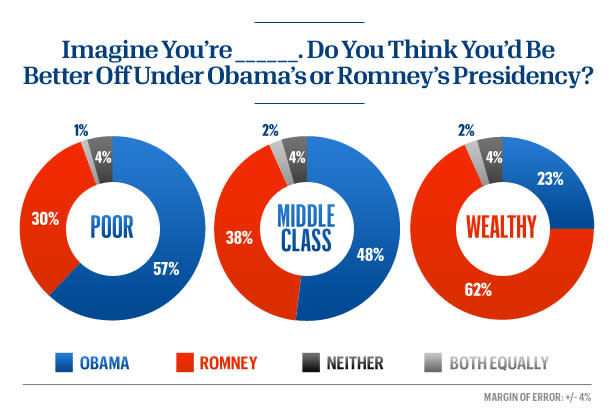
Obama leads Romney by 10 points on the question of whose presidency would be more beneficial to the middle class, 48 percent to 38 percent.
To top things off, 44 percent think that taxes are too low on those earning over $250,000 a year—a core tenet of Obama’s campaign. Another 12 percent said taxes on high earners are too high, and 28 percent said the tax rate was about right.
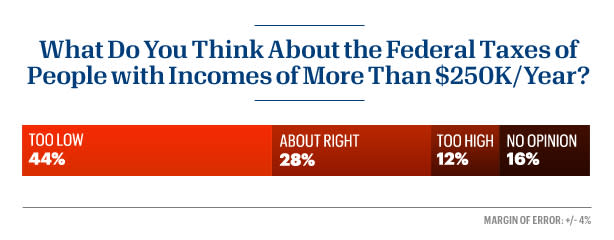
Meanwhile, with chaos in the Middle East throwing attention back to foreign policy this election, it appears that Obama holds a slight edge over Romney on a crucial foreign policy issue: more Americans trust Obama to lead the armed forces in the event of a war (46 percent) than trust Romney to do so (37 percent), with 5 percent trusting neither man.
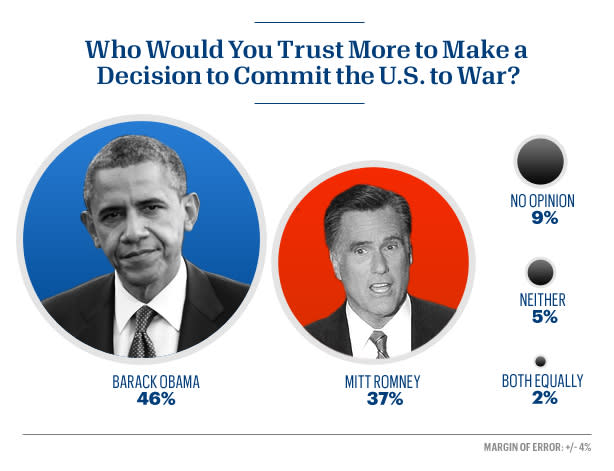
Yet, despite the administration's frequent touting of the death of Osama bin Laden, when Americans were asked which candidate instills more fear in al Qaeda, the President emerged with no advantage over Romney.
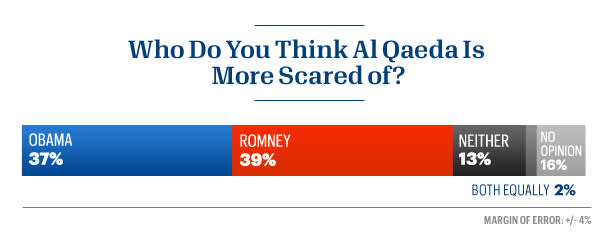
"It seems that, as effective as Democrats have been in neutralizing the Republicans’ historic advantage in the matter of national security, there remains a core group of Americans who still believe the GOP is the party of big sticks," writes Esquire in its analysis of the poll. Head over to Esquire's The Politics Blog for their complete analysis.
The poll was conducted among a random national sample of 1,002 adults from Sept. 7 to Sept. 10. The respondents were contacted by landline and cellular telephone.
Related video from Yahoo! News:

